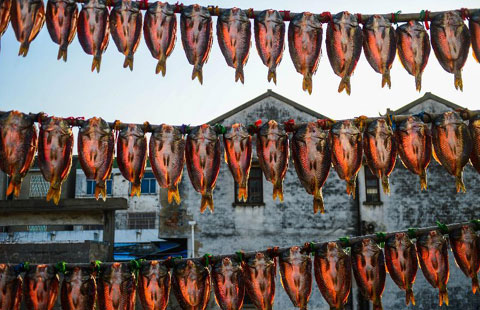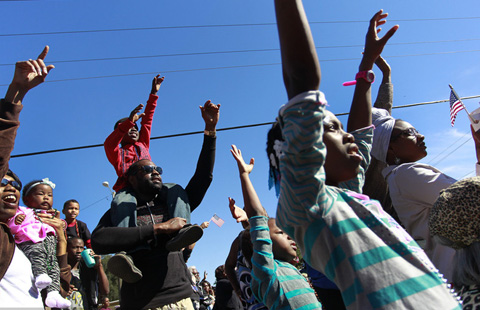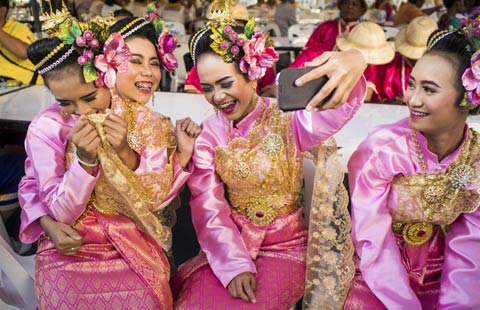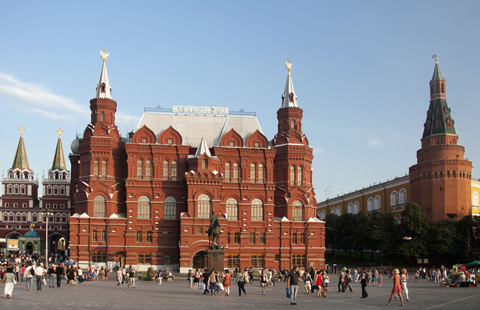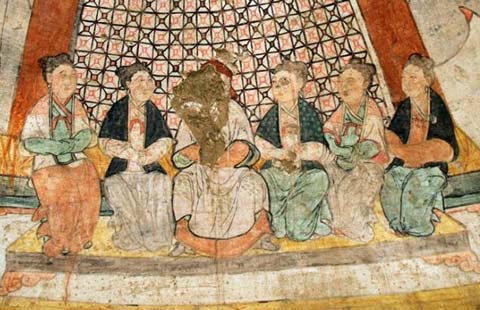
An online video released on Tuesday purported to show the Islamic State group threatening to kill two Japanese hostages unless a $200 million ransom is received in the next 72 hours.
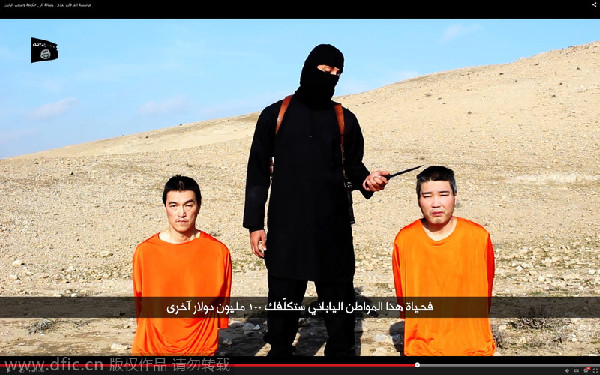 |
|
Islamic State group threatening to kill two Japanese hostages on Jan 20, 2015. [Photo/IC] |
The video, identified as being made by the group's al-Furqan media arm and posted on militant websites associated with the extremist group, mirrored other hostage threats it has made.
The militant featured in the video also directly addresses Japanese Prime Minister Shinzo Abe, who is on a six-day visit to the Middle East with more than 100 government officials and presidents of Japanese companies.
In the footage, a black-clad militant brandishing a knife addresses the camera in English, standing between two hostages wearing orange jumpsuits.
"You now have 72 hours to pressure your government into making a wise decision by paying the $200 million to save the lives of citizens," he says.
The militant says the ransom demand is to compensate for nonmilitary aid that Abe pledged to support the campaign against IS during his Middle East tour. He visited Jerusalem on Tuesday.
The Japanese government said it is examining the threat.
"We are aware of the reports. We are in discussions on the matter," said an official in the Foreign Ministry's terrorism prevention division, who declined to be named.
Asked whether the government regards the video as authentic, he told Agence France-Presse, "We are checking that, too."
The militant group identified the hostages as Kenji Goto and Haruna Yukawa.
One of the hostages appeared in footage posted in August in which he identified himself as Yukawa. He was shown being interrogated aggressively by his captors.
The second hostage, Goto, is a freelance journalist who set up a video production company named Independent Press in Tokyo in 1996. The company fed video documentaries on the Middle East and other regions to Japanese television networks, including public broadcaster NHK.
Goto was born in Sendai, Miyagi prefecture, in 1967, according to the company's website.
In August, a Japanese citizen believed to be Yukawa, a private military company operator in his early 40s, was kidnapped in Syria. His reason for going to that country remains unclear.
IS has beheaded and shot dead hundreds of captives-mainly Syrian and Iraqi soldiers-during its sweep across the two countries, and has celebrated its mass killings in extremely graphic videos.
A British-accented jihadi has also appeared in the beheading videos of US hostages James Foley and Steven Sotloff and with British hostages David Haines and Alan Henning.
The group also holds British photojournalist John Cantlie, who has appeared in other extremist propaganda videos, and a 26-year-old US woman captured last year in Syria while working for aid groups.
US officials have asked that the woman not be identified, citing fears for her safety.

